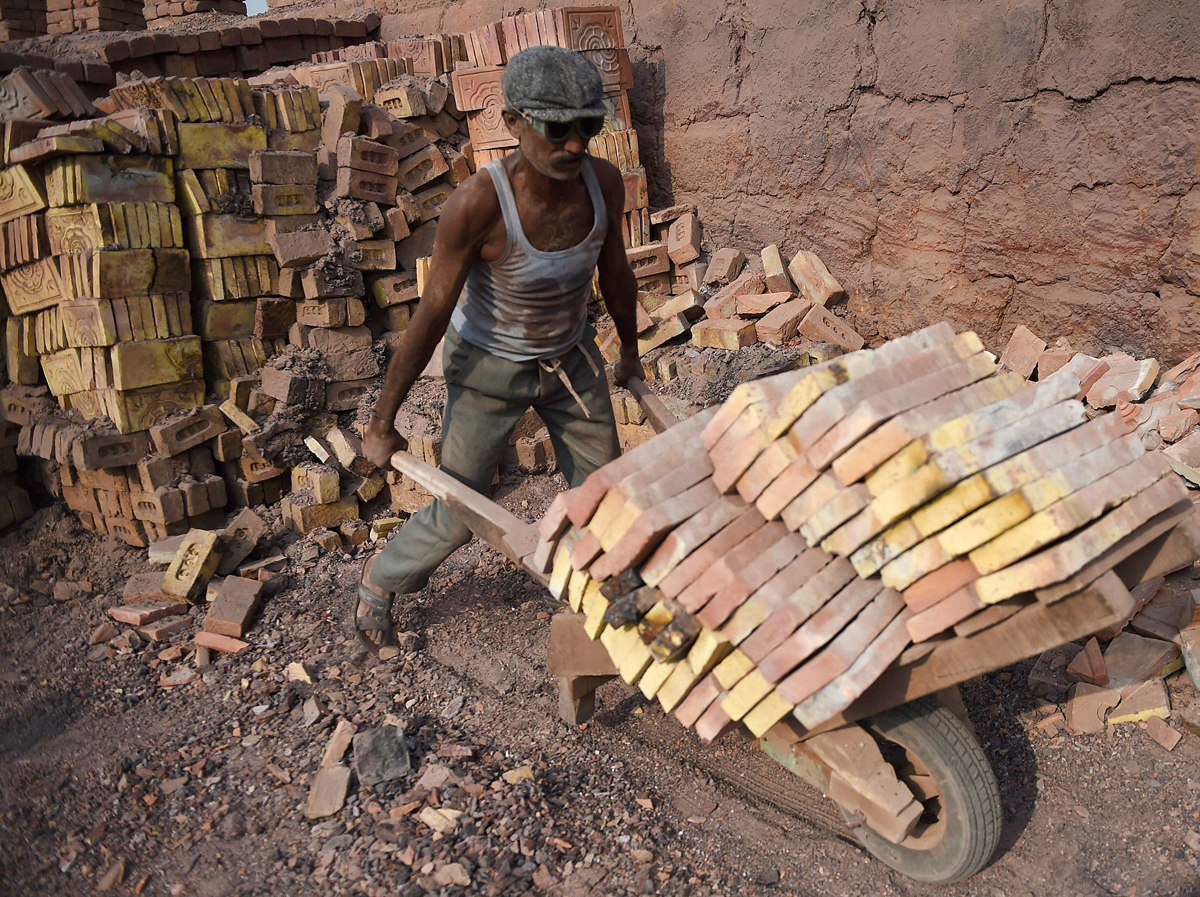

The brick-making industry is conducted using perhaps as many as two million bonded labourers. They are indebted to the owners of the kilns, often for sums that are relatively small, but they have little or no chance of escaping from their debt as the ‘wage’ they are paid is eroded by the debt payment coupled with the deductions for food and housing that goes on top, leaving little or nothing to pay off the interest on the capital sum. Debts are incurred for everything from wedding dowries to food and medical treatment or medication. Trade unions are gradually beginning to seek to influence the employers, urging kiln owners to raise wages to around $5 a day, but progress here is slow and a lot more still needs to be done.
Needless to say the employers are not supportive of the efforts of trade unions because slaves have no rights, and no union has ever succeeded in freeing a bonded labourer. Indeed, in some cases they are so dehumanised that they are known by numbers rather than their given names. Campaign groups such as the Green Rural Development Organisation seek relief for slaves from the courts but it is a Sisyphean task. Slavery is only going to disappear with a change in culture. It is going to be a long wait.
Published in The Express Tribune, December 5th, 2014.
Like Opinion & Editorial on Facebook, follow @ETOpEd on Twitter to receive all updates on all our daily pieces.



















COMMENTS
Comments are moderated and generally will be posted if they are on-topic and not abusive.
For more information, please see our Comments FAQ